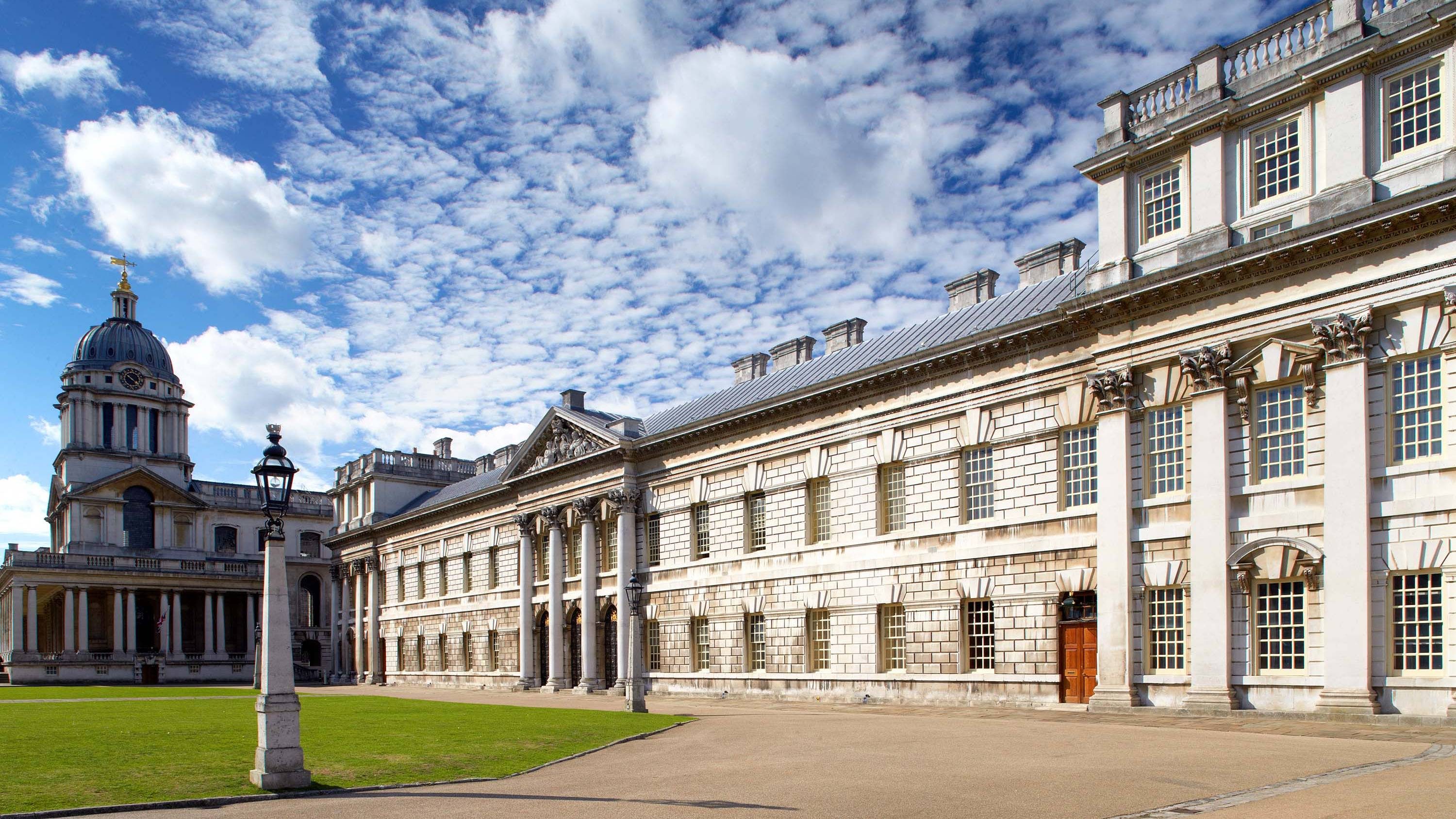
MEd Music Education (online)
Course details
Introduction
Please note, this course has recently changed name from ‘MA International: The Teaching Musician’ to ‘MEd Music Education (Online)’.
The MEd Music Education (Online) is an accredited professional development route for practising music teachers and music leaders. This masters course will enhance your understanding of current learning models and pedagogies in music, while supporting you to relate theory to practice, take part in observations, and complete inspiring work placements. Its online and flexible structure makes it suitable to those working in a wide variety of settings, including classroom teachers, instrumental or vocal teachers, and community musicians. We welcome musicians from any genre, instrument, or setting who are established practitioners, working in a music education or participatory music context within the UK or internationally.
Key Features
Our remote MEd Music Education course will enhance your musical leadership, while offering you opportunities to engage with current ideas and research in music education. It invites you to consider your own work as an educator within a wider context and evaluate its impact. It also embeds the importance of both theoretical and practical knowledge, as well as lived experience. This creates a circle of reflective practice that ensures your teaching and leadership remain relevant, fresh, and effective.
The course is delivered by expert practitioners, teachers, and researchers. Visiting lecturers will explore a variety of approaches current within the music education profession. You will develop a critically aware appreciation of contemporary research in music education, engage in informed discussion within a diverse international community of learners, critically analyse contextual practices, and manage your own future development as a professional. The course’s learning opportunities will allow you to gain a rich appreciation of international practices and philosophies of music teaching, learning and participation, supporting the development of a broad and diverse skill set for continuing professional life or doctoral study.
Key Facts
- UCAS
- 555P
- Location
- Online Learning
- Duration
- 2–4 years
- Start Date
- September
Fees
Audition fees
There is no audition fee for this course. You will need to pay the UCAS Conservatoires administration fee of £28.50 for the 2025 entry cycle.
Key Dates
-
Welcome Week
-
Autumn Term
-
Activities Week
-
Spring Term
-
Activities Week
-
Summer Term
-
Activities Week
Detailed Information
The MEd Music Education course consists of three blocks of study taught by our staff and a range of visiting speakers:
BLOCK A (PG Certificate) Modules (60 credits): Block A outlines the core theoretical concepts that can be applied to practice, supporting the development of an ethical stance, and facilitating a placement to provide insight into a musical environment that is new to you. You can choose from a range of teaching resources that explore the pedagogy and practice of instrumental / vocal teaching, class or group teaching and creative, participatory learning. The structure allows you to engage with concepts most relevant to you and creates an environment in which pedagogic principles can be explored across professional contexts. There is regular online discussion through forums and live study groups, and 1-1 staff support.
BLOCK B Contemporary Practice Modules (60 credits): Block B extends student knowledge through an adoption of innovative technologies, an interrogation of the concerns of contemporary research, the support of a learning mentor, and either an investigation into the social impact of music making or an examination of the underlying principles of music education in the UK. The option to undertake ten hours of 1-1 study with a member of Trinity Laban’s performance staff is also available.
Block C Personal Project Modules (60 credits): Block C directs students towards the creation of new knowledge, first equipping them with the skills to interrogate and design research methods. The Personal Project consolidates learning from other elements of the course and involves self-directed research in an area specific to each student, developing the skills necessary for doctoral study.
- Blocks of study may be taken concurrently or separately.
- You may take study blocks worth a maximum of 120 credits in any one year.
- Block A modules should always be taken at the beginning of the study course.
- For guidance, we usually expect students to undertake ten hours of learning activity towards each unit of credit. This includes private study, person practice and reflection, work towards assignments and online activity, as well as attending online study groups, supervisions, and tutorials. 120 credits is equivalent to one year of full-time degree study.
- Enrolment need not be continuous (i.e. you may return to study after a time away) but we usually expect the MEd to be completed within five years.
Our students report that the course builds connectivity and a network of support in what can otherwise be an isolating work environment. Students have also been approached by employers to deliver training based on research undertaken for the Personal Project module, having built new and innovative teaching techniques into their practice and seen enhanced job prospects through the value that an MEd from a world-leading conservatoire holds.
Learning, teaching, and assessment
Learning takes place online through a blend of formal tuition, experiential learning, and personal study. Academic teaching and supervisions, research, and observation of and participation in professional practice are the central elements of the provision. Practical experiences are coupled with theoretical knowledge to develop your pedagogical skills and understanding, and your creative responses to challenges.
All modules have a substantial portfolio of asynchronous learning materials, including seminar videos, curated and recommended reading. Modules also have a variety of forms of student-student and student-teacher interactions, including Moodle forums, interactive discussion boards, MS Teams videoconferencing and chat tools, and through formative assessment portfolios. You will have regular live study groups via MS Teams, 1-1 supervision, and personal tutorials; all written submissions are able to receive draft feedback from staff.
Assessment methods mirror professional requirements as much as possible. Breadth and depth of study is demanded. In the Education Placement, for example, you will have to both examine the teacher / context / pupil interactions through a theoretical lens, and drill down into one aspect of policy, ethics, management or pedagogy in their observed context. Whilst most submissions are written, multi-media submissions are encouraged for some assignments.
Assessment is both OF practice (via video observations, for example, or the creation of resources or lesson plans) and ON practice (reflective and evaluative writing, for example), and follows a trajectory of increasing student choice through the course. Deadlines are spaced carefully throughout the year, and the emphasis on professional practice means that tasks are often incorporated into working schedules.
Feedback from staff is offered formatively in live online study groups, via forum post responses and through the return of draft submissions; peer feedback is harnessed in study groups and through the forums. Summative feedback is offered in grading and all credit-bearing submissions also generate substantial levels of formative feedback via comments on the script and summary text. The staff team integrates assessment and feedback into the learning process itself, rather than just using them at the end. They focus on promoting clear communication and enhancing assessment and feedback through activities, such as sample text marking and providing example submissions.
For more information, please see the programme specification (in Downloads section) or contact our Admissions team (admissions@trinitylaban.ac.uk).
Voluntary Residential
We recognise that you might want to come to London in support of your studies and to meet staff and fellow students. An in-person complementary annual residential programme at Trinity Laban’s historic campus is offered alongside the credit-bearing course at an additional cost.
This will take place each April for one week (dates tbc) and will include classes such as Dalcroze Eurhythmics, improvisation ensemble, 1-1 lessons, research skills, library skills, and guest lectures, as well as trips to concerts and cathedral evensong. More information about this residential will be published in due course, and it will be offered subject to demand.
Student feedback
“It has opened my mind to so many new ideas. I have found that musicians all around the world face similar thoughts, questions, and drive for improvement.”
“It’s really inspired me to look at what I do and change my practice to make it more innovative and learning focused, and given me the confidence to move on with my career and get back to doing what I love.”
“It’s been amazing: thought-provoking, challenging, and practice changing. I’m constantly reflecting and adapting my practice. I have new-found confidence and am happy in the knowledge that my practice is supported by theory.”
“I highly recommend the course. It has exceeded expectations and has changed my practice and developed my confidence considerably.”
Entry Requirements
- A degree (or equivalent qualification), or equivalent training and / or professional experience. The course welcomes applicants who do not hold an undergraduate degree, but can demonstrate equivalent previous study and / or experience. Applicants without a degree will be required to apply for Recognition of Prior Learning to demonstrate suitability for postgraduate study.
- Considerable professional experience in music education and / or participatory settings, which should normally be current or recent, and a current professional practice.
- Fluent musical skills on a principal instrument / voice (normally grade 8 or equivalent professional experience).
- (For International Students) IELTS 6.5 overall with a minimum of 5.5 in all 4 areas / Trinity College London – Integrated Skills in English III (ISEIII).
- A successful applicant to the course will need to demonstrate the following through a personal statement:
- The capacity for independent, critical and reflective judgement.
- Intellectual curiosity and the potential for innovative pedagogical and musical development.
- A critical understanding of the diversity of learners and the complexities of the education process.
- The ability to organise and articulate opinions and arguments in writing using relevant specialist vocabulary.
In order to access the full range of Education Placements, UK based students will need to have an Enhanced DBS Check.
This is a non-auditioned course, assessed through UCAS Conservatoires application only, with Recognition of Prior Learning (for those without a first degree) conducted via written task and interview. Please note this course is not eligible for Student Visas.
Application process
Please contact admissions@trinitylaban.ac.uk or the Programme Leader Tim Palmer t.palmer@trinitylaban.ac.uk with any enquiries.
Subscribe to our Professional Development, Music mailing list to hear updates first about the MEd Music Education (Online) and other music education courses with Trinity Laban.



















